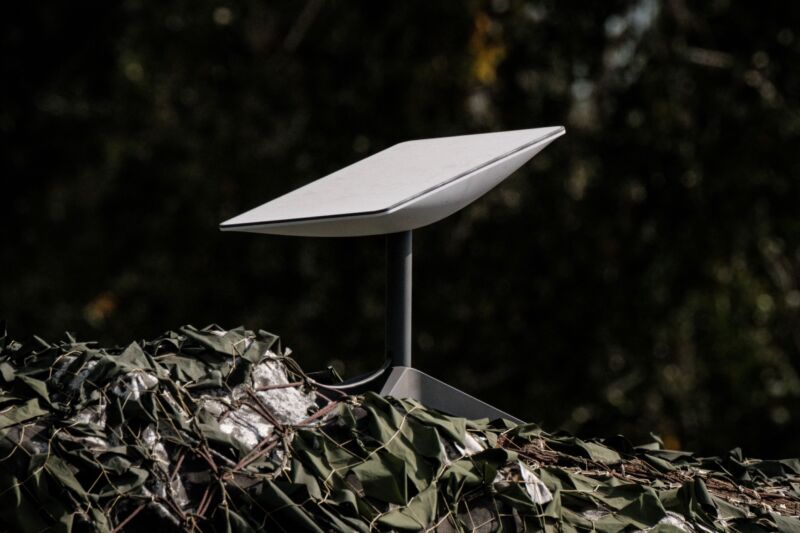
Enlarge / Starlink satellite dish seen on September 25, 2022 in Izyum, Kharkiv region, amid the Russian invasion of Ukraine. (credit: Getty Images | Yasuyoshi Chiba)
Russia has made some of its most provocative comments yet about Western commercial satellites, which have provided valuable imagery and communications data to Ukraine this year, suggesting they are appropriate wartime targets.
In comments made Wednesday, a deputy director in Russia's foreign ministry, Konstantin Vorontsov, said the use of Western commercial satellites by Ukraine is "an extremely dangerous trend." While Vorontsov did not specifically name any satellites, he almost certainly was referring to SpaceX's Starlink satellite constellation, which has been used by Ukrainian soldiers for communications, and synthetic aperture radar satellites that have tracked Russian troop and tank movements. Vorontsov said:
We would like to specifically stress an extremely dangerous trend that goes beyond the harmless use of outer space technologies and has become apparent during the latest developments in Ukraine. Namely, the use by the United States and its allies of civilian, including commercial, infrastructure elements in outer space for military purposes. Apparently, these States do not realize that such actions in fact constitute indirect participation in military conflicts. Quasi-civilian infrastructure may become a legitimate target for retaliation. Western actions needlessly put at risk the sustainability of peaceful space activities, as well as numerous social and economic processes on Earth that affect the well-being of people, first of all in developing countries. At the very least, this provocative use of civilian satellites is questionable under the Outer Space Treaty, which only provides for the peaceful use of outer space, and must be strongly condemned by the international community.
This is not the first time Vorontsov has made such comments, as he made similar remarks last month to the United Nations Office for Disarmament Affairs working group. However, it is not clear to what extent Russia might be able to follow through on its threat to target commercial satellites.
Read 9 remaining paragraphs | Comments
